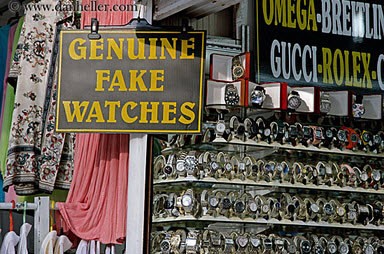 If your product is very successful and if you have no legal way of protecting it—which is true, in most cases—then why not knock yourself off before someone else does?
If your product is very successful and if you have no legal way of protecting it—which is true, in most cases—then why not knock yourself off before someone else does?
Put yourself in the knockoff artist’s shoes. How would he or she copy your product? In most cases, they will look to make it less expensive, in order to both build on your proven product and also undersell it. (And this can be a very effective strategy indeed.) Beat them to the punch. At the outset, you have the advantage over the copier. You’re the first to know if the item is a good or bad seller. Ask questions like:
|
“By knocking yourself off,you beat the competition to the market and you discourage new competition.” |
• Can I make it cheaper in other locations?
• Can I redesign it so that it’s less expensive to make?
• What materials can I use that are less expensive?
• Who will I sell it to, and what kind of volume can they give me?
• What cost savings can I get by buying in much larger quantities? (This is one of the major ways the copiers are effective in their knocking off.)
• What internal cost savings can I achieve for the knockoff version? These might include, for example, lower sales commissions, less expensive packaging, higher packing for the master carton, better cash selling terms (like a letter of credit), etc.
By knocking yourself off, you beat the competition to the market and you discourage new competition. However, you also have to think through your new strategy. Will my original version continue? It can, if your knockoff is materially different and sold in different channels of distribution. Is my original version fading in sales? If so, then you might want to bring your new knockoff version to your regular customers. You might have to do so anyway and let the buyer make decisions about which to buy.
